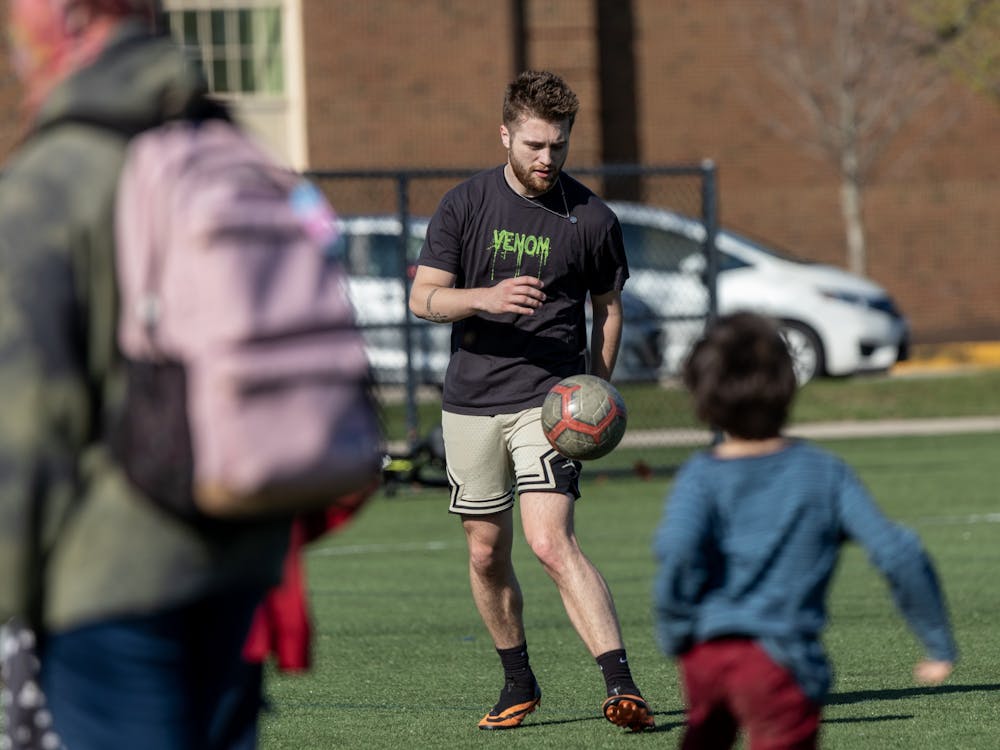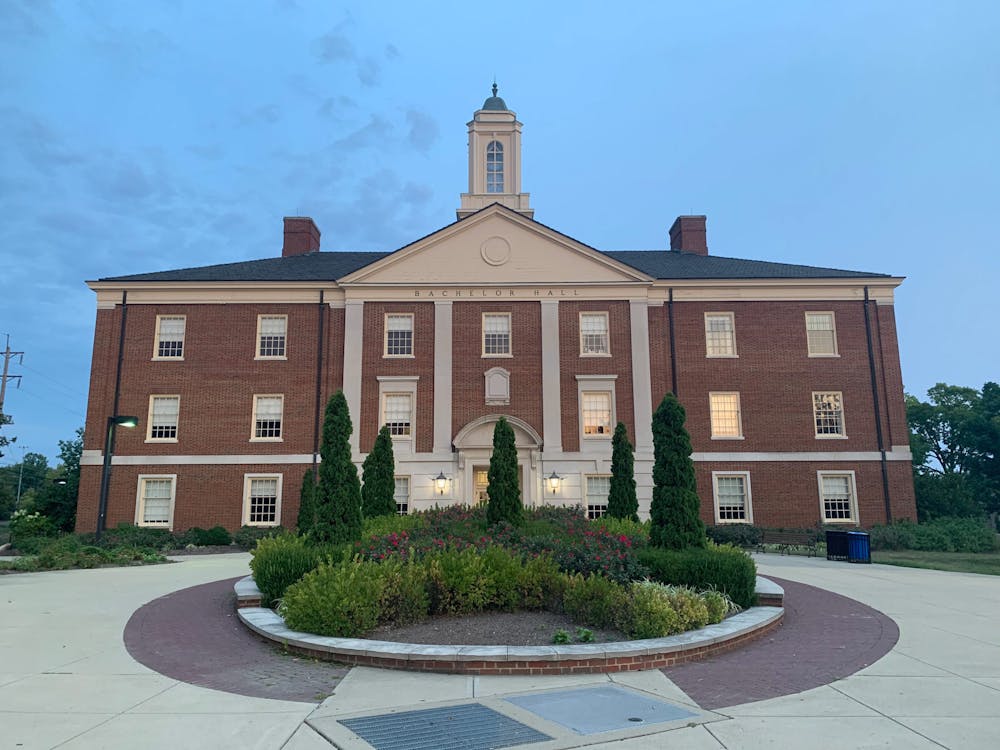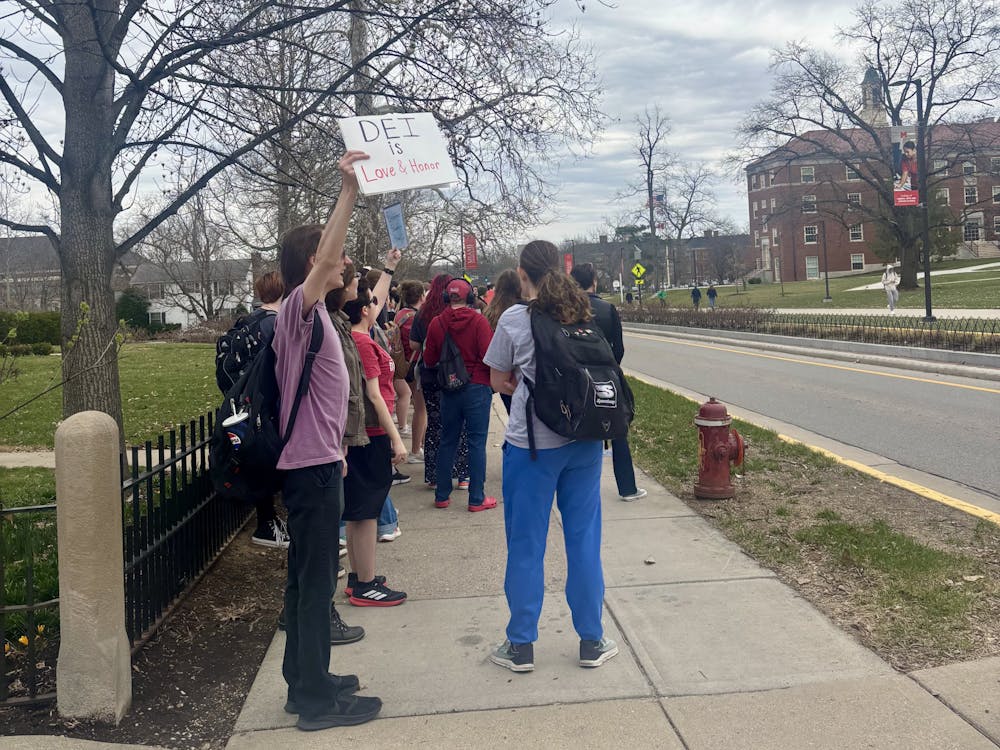Two members of Miami University’s Planning Committee appeared before the University Senate on Monday, Nov. 18, to advocate for a cautious approach to modifying campus green spaces in response to development plans proposed by the university administration.
David Prytherch and Kelly Knollman-Porter presented the senate with a draft recommendation urging Miami to create a strategic development master plan. The proposal comes after they were informed that Miami is considering building a university-affiliated hotel on Cook Field and a new sports arena near Slant Walk.
This marks the committee’s first formal presentation to the Senate in recent years.
“We reiterate the need for a long-term strategic comprehensive campus master plan that will provide a framework for campus development [and] decision making while allowing for flexibility and growth,” Knollman-Porter said.
The recommendation to the administration outlines three points: a strategic and comprehensive campus master plan should provide a framework for future development, stakeholders and the community should be better engaged in planning and decision-making and Miami should proceed with campus projects with caution to ensure the new plan and process support them.
Over the past two decades, Miami has implemented various development plans, including the Climate Action Plan and Campus Heritage Plan. Prytherch said a master plan that balances these different priorities is essential for future development.
“How do you reconcile your desire to achieve carbon neutrality against your desire for historic preservation and your diet for growth,” Prytherch said. “Those things can literally physically collide with each [other] on campus. So the question is, how do you make sure all these things align with each other.”
Unlike other institutions, such as The Ohio State University, Miami does not have a comprehensive development master plan. Its closest equivalent is the Campus Exterior Space and Landscape Master Plan, developed in 2004, which addresses the broad arrangement of improvement projects and the Senate review process.
The plan says certain spaces on campus “represent the identity of the institution, and as such, will be treated with the highest level of care and maintenance.” The proposed sports arena is set to be located in one of these historic spaces adjacent to Slant Walk.
The planning committee recommended creating a master plan in 2022, but the administration declined due to cost concerns. However, Prytherch said the administration at the time said if the university were to experience a period of rapid expansion or change on the campus, updates would be needed for the planning documents.
“It was recently brought to our attention approximately three weeks ago, and it was not done through administration, it was through an outside source that Miami is on the verge of making some major campus changes,” Knollman-Porter said.
Originally, the hotel was planned for a site near Millett Hall, but when the committee found out that alternative locations such as Cook Field were being considered, they made a recommendation encouraging them to look at other sites.
Enjoy what you're reading?
Signup for our newsletter
“We had the sense in the committee that this was a very important space for the students since we see them there most evenings and on weekends,” Knollman-Porter said.
Several senators expressed support for the recommendation, including Senator Rodney Coates, professor of critical race and ethnic studies, who emphasized the importance of maintaining the beauty of Miami’s campus.
“This campus is one of the loveliest campuses that I’ve been on in all my years and any time we don't have this longer planning document and input, [we] risk destroying one of the many things that make this campus what it really is,” Coates said.
Senator Adam Beissel, an associate professor of sports leadership and management, said that while the new sports arena may be necessary, it’s not the most economically beneficial.
“[Millett] is really unsustainable in the long term,” Beissel said, “but also the economics of this [new arena] are likely not going to be positive, given our regional location [and] the ability or lack of ability to get primary events like concerts and things.”
Other senators, such as Nathan French, associate professor of religion, viewed the recommendation as a chance to strengthen faculty involvement in major decisions.
“This is really an opportunity for us to restore an aspect of shared governance that has degraded a bit over time, mainly because of all the things that we have on our plates from workload and everything else,” French said. “We have a tremendous amount of expertise in this room.”
The University Senate is scheduled to vote on the recommendation during its next meeting on Dec. 2 at 3:30 p.m. at 111 Harrison Hall.




